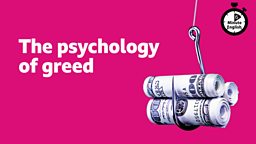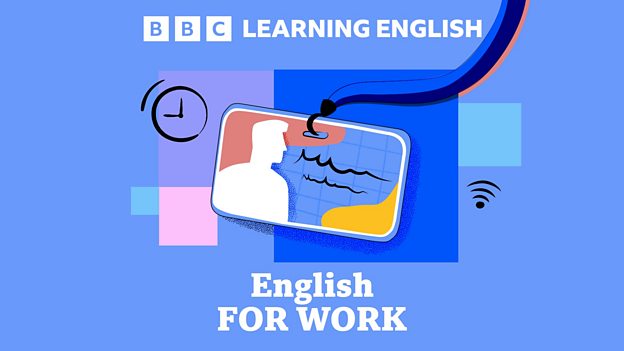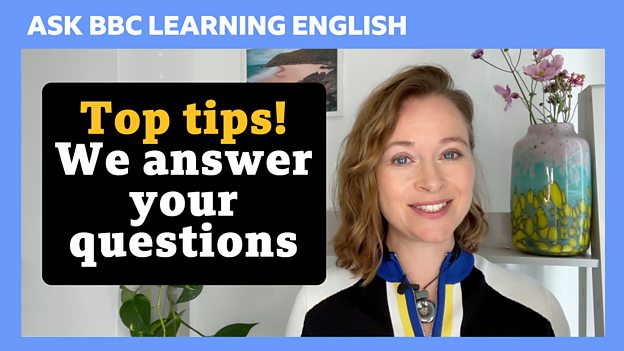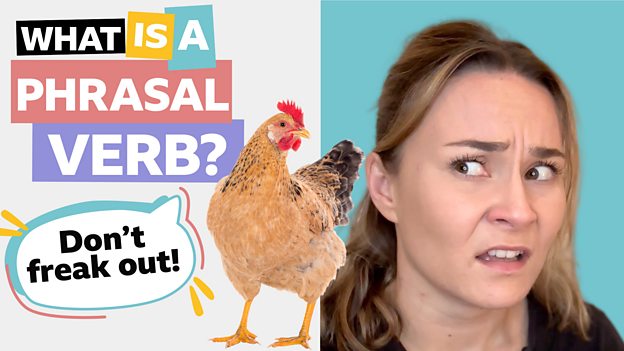6 Minute English
Intermediate level
Building a better world with wood?
Episode 240620 / 20 Jun 2024

_____________________________________________________________________________________________________
Download a free 6 Minute English worksheet!
Download a free transcript!
______________________________________________________________________________________________________
Try more episodes of 6 Minute English:
Introduction
Did you know that being in nature, and building with wood, has benefits for our physical and mental health? Neil and Beth discuss this and teach you some useful vocabulary.
This week's question
How many trees were needed to build the HMS Victory, Nelson’s famous ship at the Battle of Trafalgar in 1805?
a) 4,000 trees?
b) 5,000 trees? or,
c) 6,000 trees?
Listen to the programme to hear the answer.
Vocabulary
forest bathing
being in nature and immersing your senses in the experience for its physical and mental health benefits
timber
trees that are grown so the wood can be used for building houses
compelling
so strong and convincing that it makes you believe or accept it
intelligently
in a way showing intelligence and skill, or the ability to learn
hemp
family of plants, some of which are used to make rope and strong cloth
skyscraper
very tall modern building, usually in a city
TRANSCRIPT
Note: This is not a word-for-word transcript.
Neil
Hello. This is 6 Minute English from BBC Learning English. I’m Neil.
Beth
And I’m Beth.
Neil
Being in nature has benefits for our physical and mental health, so wouldn’t it be good if instead of giving you a bottle of pills, your doctor recommended spending time in nature?
Beth
That’s an interesting idea, Neil. Being outdoors always makes me feel better, and in Japan there’s even a word for it - shinrin-yoku – translated into English as forest bathing. Forest bathing is a type of relaxation that involves being calm and quiet amongst the trees and using all your senses to observe nature around you, whilst breathing deeply.
Neil
It sounds wonderful, Beth! In this programme, we’ll be hearing how one of the world’s oldest building materials, wood, is being used in new ways to build a greener future. And, as usual, we’ll be learning some useful new vocabulary as well.
Beth
Great, but first I have a question for you, Neil. Like many other countries, Britain used to be covered in trees. In Roman times, it’s estimated that as much as 40% of the land was forest. Trees provided wood, the building material needed for many things including buildings, furniture, and ships. So how many trees do you think were needed to build the HMS Victory, Nelson’s famous ship at the Battle of Trafalgar in 1805? Was it:
a) 4,000 trees?
b) 5,000 trees? or,
c) 6,000 trees?
Neil
Well, I have no idea. But I’ll guess it was 5,000 trees.
Beth
OK, Neil, I’ll reveal the correct answer at the end of the programme. Throughout history, buildings in Britain have been made of timber, trees that are grown so their wood can be used as a building material. But in modern times, this has mostly been done by man-made materials - brick, concrete and steel. One of those arguing for a return to wood is architect, Michael Ramage, talking here to BBC Radio 4 programme, Rare Earth:
Michael Ramage
There is some compelling evidence to show that children in schools made of wood learn better… they have greater concentration, lower stress, lower heartbeats. And there's compelling evidence to show that patients in hospitals recover better in both rooms made of wood or other natural materials, and also in rooms that have views of nature out the window.
Neil
Michael believes there is compelling evidence for the health benefits of wood. If something is compelling, it’s so convincing that you believe it. As evidence, he gives examples - that wooden schools help children learn.
Beth
But there’s another compelling reason to build with wood – the carbon which wood captures helps combat climate change. It’s why many governments around the world want to replace the carbon intensive production of concrete and steel with bio-based materials like wood.
Neil
Here’s architect, Michael Ramage, again, describing the possibilities of wooden buildings to BBC Radio 4’s, Rare Earth:
Michael Ramage
We look at the possibilities of building with wood and other materials we can grow – bamboo, hemp, flax… and how we can use them intelligently as replacements for steel and concrete in the world that we create around us. And we've looked at skyscrapers, we've looked at housing, we've looked at schools, and there’s a whole range of buildings that we can build if we use wood well.
Beth
Michael builds with natural materials which can be sustainably grown, including bamboo and hemp – a family of plants which are used to make many products such as rope and cloth. He thinks these natural, bio-based materials will work if they are used intelligently – in a clever, intelligent way.
Neil
A good example of this is plywood, the first new material in construction since the invention of reinforced concrete 100 years ago. Tests prove that plywood made from layers of pine, which are laid crossways and then glued together, is as strong as steel. It’s already been used to build skyscrapers, the very tall modern buildings you often see in cities – an 85 metre high skyscraper in Norway, and an even taller one, at 87 metres the world’s tallest, in Milwaukee, USA.
Beth
Strong, relaxing and eco-friendly – it seems that building with wood is good for the future as well as the past, which reminds me of my question, Neil.
Neil
Yes, you asked me how many trees were used as timber for Nelson’s famous warship, HMS Victory, and I guessed it was 5,000…
Beth
Which was close, but the wrong answer, I’m afraid. It was even more, around 6,000 trees, most of which were oak, with some timbers over half a metre thick! OK, let’s recap the vocabulary we've learned in this programme starting with forest bathing, being in nature and immersing your senses in the experience for its physical and mental health benefits.
Neil
Timber is trees grown so the wood can be used for building houses.
Beth
If an argument or evidence is compelling, it’s strong, convincing and believable.
Neil
The adverb intelligently means done in a way showing intelligence and skill.
Beth
Hemp is a family of plants, some of which are used to make rope and strong cloth.
Neil
And finally, a skyscraper is a very tall modern building, usually in a city. Once again our six minutes are up, but remember to join us again next time for more trending topics and useful vocabulary, here at 6 Minute English. Goodbye for now!
Beth
Bye!
Latest 6 Minute English

Embarrassed to go to the doctor?
Episode 241226 / 26 Dec 2024
Have you ever been embarrassed to go to the doctor?
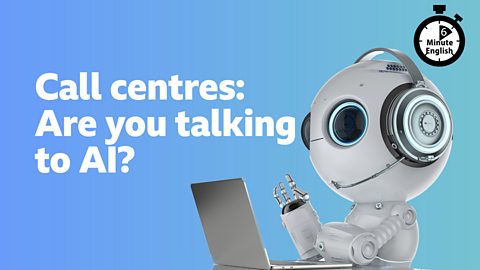
Call centres: Are you talking to AI?
Episode 241219 / 19 Dec 2024
Have you ever phoned up a company and had your call held in a queue? Could AI make this less painful?

Making 'mum friends'
Episode 241212 / 12 Dec 2024
Is making new ‘mum friends’ the positive experience it’s often described as?
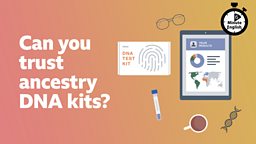
Can you trust ancestry DNA kits?
Episode 241205 / 05 Dec 2024
Are DNA ancestry tests a reliable way to trace your ancestry?
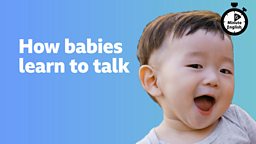
How babies learn to talk
Episode 241128 / 28 Nov 2024
What do babies need to learn to do to be able to talk?
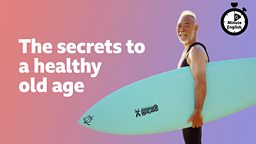

The bond between sisters
Episode 241114 / 14 Nov 2024
Are the stereotypes about older and younger sisters true?


Why you need a good night's sleep
Episode 241031 / 31 Oct 2024
Why is it so important to get a good night's sleep?

Divorce: Why does it happen?
Episode 241024 / 24 Oct 2024
How is divorce talked about in different countries?

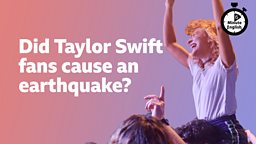
Did Taylor Swift fans cause an earthquake?
Episode 241010 / 10 Oct 2024
Did Taylor Swift move the Earth?


Learning a new food culture
Episode 240926 / 26 Sep 2024
Would you find it different to adapt to a new food culture?
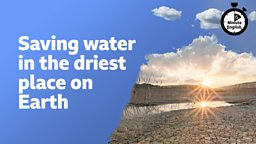
Saving water in the driest place on Earth
Episode 240919 / 19 Sep 2024
How do farmers in the driest place on Earth manage to grow crops? With this solution!


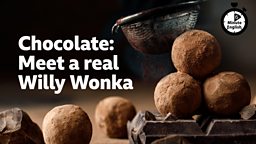
Chocolate: Meet a real Willy Wonka
Episode 240829 / 29 Aug 2024
Would you like to be a chocolate maker, like Roald Dahl's Willy Wonka?
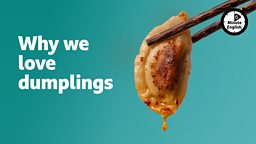
Why we love dumplings
Episode 240822 / 22 Aug 2024
Warning! This episode might make you very hungry...

Kids and climate change
Episode 240815 / 15 Aug 2024
What are young people's thoughts on climate change?


The science of falling in love
Episode 240801 / 01 Aug 2024
What's really happening in our brain when we fall in love?
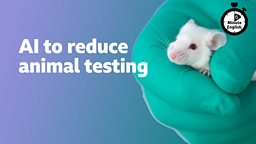
AI to reduce animal testing
Episode 240718 / 18 Jul 2024
Could AI reduce the need for animal testing?

Why read books, not screens?
Episode 240718 / 25 Jul 2024
Why is it better to read from a book than a screen?

The school that puts the kids in charge
Episode 240711 / 11 Jul 2024
What happens when you put the kids in charge of the school?

What can we learn from toddlers?
Episode 240704 / 04 Jul 2024
Learn to speak to yourself in the way that toddlers do!
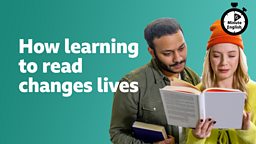
How learning to read changes lives
Episode 240627 / 27 Jun 2024
How can literacy change people's lives?
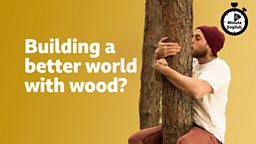
Building a better world with wood?
Episode 240620 / 20 Jun 2024
How can buildings made from wood help our mental health?
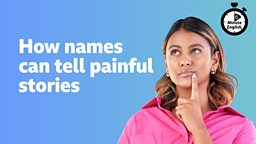
How names can tell painful stories
Episode 240613 / 13 Jun 2024
Could our name have painful baggage?

E-rickshaws driving away pollution
Episode 240606 / 06 Jun 2024
Could E-rickshaws give us cleaner air?




Bitter food, better health?
Episode 240509 / 09 May 2024
Could bitter foods be better for your health?
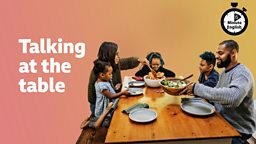


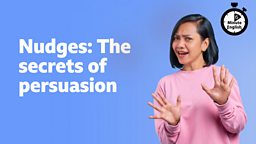



Disability in music and theatre
Episode 240321 / 21 Mar 2024
Learn about the people who are making it easier for disabled musicians and music fans to perform and see live music

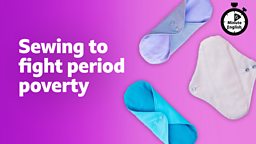
Sewing to fight period poverty
Episode 240307 / 07 Mar 2024
Period poverty affects over 500 million people worldwide. How can a volunteer project help?

Plastic waste eaten by enzymes
Episode 240229 / 29 Feb 2024
Plastics can be difficult to recycle. Could a recently discovered enzyme help?
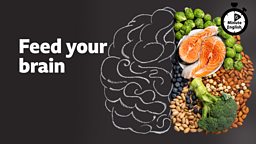
Feed your brain
Episode 240222 / 22 Feb 2024
Food is fuel for our brains. So, what should we be eating?
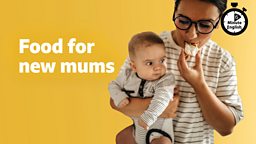
Food for new mums
Episode 240215 / 15 Feb 2024
Having a baby is exhausting! What do mothers need to eat after giving birth?
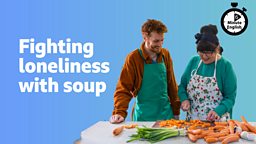
Fighting loneliness with soup
Episode 240208 / 08 Feb 2024
Hear how a project in the Netherlands is helping in the fight against loneliness

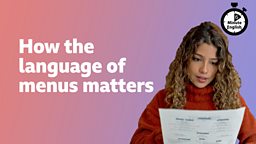
How the language of menus matters
Episode 240125 / 25 Jan 2024
Why is the language used on menus important?
